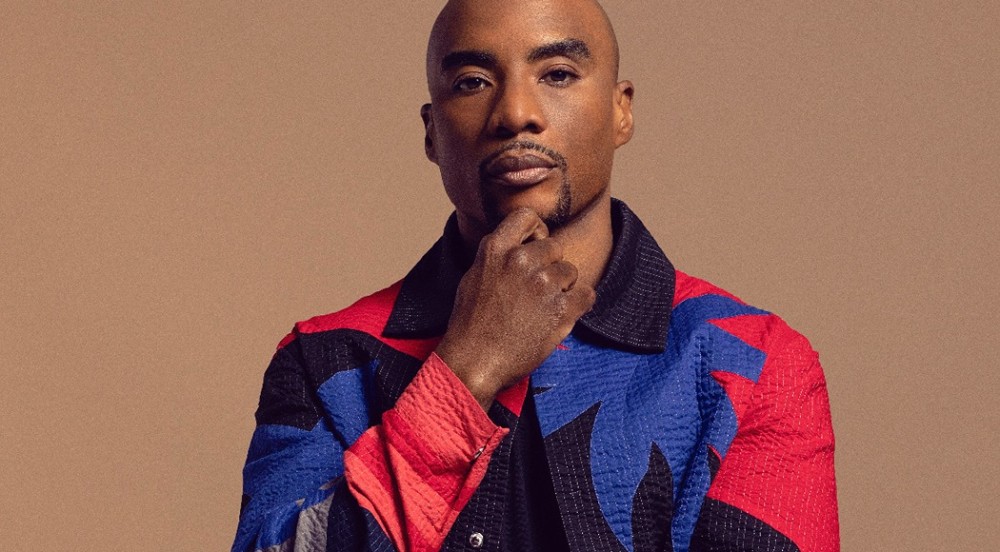The summer of 1985 impacted the city of Philadelphia in ways not many have realized. On May 13, 1985, Mayor Wilson Goode—the city's first Black mayor—made a jarring decision to drop a bomb on the headquarters of MOVE, a controversial communal, collaborative organization founded by John Africa. The bombing decimated two city blocks. Yet, two months later on July 13th, the United States hosted its version of the Live Aid concert to raise funds for Ethiopian famine victims.
To recount this history, Kevin Hart and Charlamagne Tha God have teamed up with author Chris Morrow and Audible for an original project called Summer of '85. Each chapter includes archival footage, narrated commentary and personal accounts from those who remember that moment in time, such as Patti LaBelle and Darryl “DMC” McDaniels.
EBONY caught up with Charlamagne Tha God to discuss the Summer of '85 and why bringing light to that period are important to our understanding of history.
EBONY: What is the hope for what the series will accomplish by bringing to light the events of the Summer of ‘85 in Philadelphia?
Charlemagne tha God: The same thing I want every project that I am a part of to be, that is something that people learn from. My man Chris Morrow says people don’t know what has happened in this country and they don’t know what can happen and I truly feel like that. I feel that in light of history, when you just pay attention to things you’ve already seen in the country, we are looking at where society can go right now—so I just hope people learn from Summer of ‘85.
How does Summer of ‘85 uniquely capture and incorporate the nuance of the period?
By talking to the people who were there, by talking to the people who were actually involved, by talking to the people who have firsthand information. I mean that is what makes any great documentary, right? Nobody wants to see a documentary told by people who weren’t there. Even though you are going to tell the story, you still have to go get that firsthand information. Being that there are still members of the Africa family that are here, they are able to tell their own stories. I think that’s what makes a great documentary—when a person gets to tell their own tale.
Can you share your experience in the development process for this project alongside Chris Morrow?
Chris Morrow is my guy. Chris Morrow is someone who eleven years ago gave me two great pieces of advice. He used to produce The Breakfast Club syndicated show. When The Breakfast Club starting getting syndicated on the weekends, Chris Morrow at the time was working for Premiere, which is our syndication company. I remember he said to me, “You need to write a book and you need to start a podcast.” I remember being arrogant like why do I have to start a podcast? I am already on the morning radio, why do I need a podcast? It was a decade ago, and luckily, I wasn’t arrogant enough to not listen, so I started the podcast which is The Brilliant Idiots, which got me into the podcast space and then I wrote my first book. Chris Morrow is my co-author on both of my books, Black Privilege and Shook One. Chris Morrow has been there with me every step of the way and he has been talking about this project for a long time. He is from Philadelphia, so he has been talking about what happened during the summer of 1985. And I remember him explaining this to me years ago. So, for me, when I got the opportunity to partner with Audible and be able to tell these kinds of stories, he was one of the first people I reached out to. I didn’t have to be involved in the development everyday because I knew it was a passion project for him. I trust Chris.
Looking back on the summer of 1985 in Philadelphia offers a jarring dichotomy experienced over a span of two months. How can bringing light to these events help us deeper our understanding of tensions regarding community relationships with the government in 2022?
My good sister, Erika Alexander, the creator of Finding Tamika with Color Farm Media, always repeats this African proverb, “Until the lion tells his side of the story, the tale of the hunt will always glorifier the hunter.” That is what the problem is with America. There are so many stories told by the perspective of the hunter instead of the perspective of the people who were actually victimized by a lot of the things that this country and government did, so that is why Summer of ‘85 is great, because we are actually talking to the people that were there.













